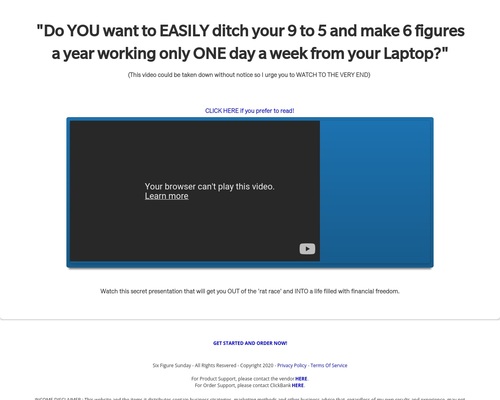
[ad_1]
Christina Swarns is a leading capital defense attorney, a nationally recognized criminal legal reform expert and the first Black woman executive director of the Innocence Project — a nonprofit legal organization that works to free innocent people who have been wrongfully convicted.
In her nearly 30-year-long career in criminal justice, she has worked as a public defender for the Legal Aid Society and as the president and attorney-in-charge of the Office of the Appellate Defender, Inc. In her previous role as the litigation director for the NAACP Legal Defense & Educational Fund, Swarns argued and won Buck v. Davis, becoming one of the few Black women to have ever argued before the U.S. Supreme Court.
Over the last 30 years, the Innocence Project has championed the use of DNA testing to help free more than 200 people who were wrongfully convicted. Of the organization’s 239 victories, 64 percent involved eyewitness misidentification; 52 percent contained unvalidated forensic science; and 27 percent included false confessions. Two-thirds of the 239 people who were exonerated by the organization are people of color, and 58 percent are Black. Furthermore, half of the 2,947 people who have been exonerated in the United States since 1989 are Black.
In addition to freeing wrongfully convicted people, the organization works to transform the systems responsible for unjust incarcerations, and to build and advance a movement that demands and ensures justice through policy reform. To date, the Innocence Project has changed more than 200 laws to prevent wrongful convictions, and it provides critical support to exonerees whose lives have been destroyed by the criminal legal system.
ESSENCE spoke with Swarns about the work of the Innocence Project, its role in the movement for Black lives and her plans to expand the organization’s focus.
This interview has been edited for clarity and length.
ESSENCE: Why did you decide to join the Innocence Project?
Christina Swarns: The Innocence Project is the most transformative criminal legal system reform organization in American history. I graduated from law school a year after the Innocence Project opened its doors. At that time, there wasn’t an understanding of the fact that a lot of people were being locked up that were completely innocent. Over the arc of my career, I had a front row seat to the impact of the Innocence Project on the work of the system. I saw how, once people started walking out of prison, exonerated by DNA evidence, judges, prosecutors and jurors changed the way they were interacting with people coming through the system. I always understood that if I came to the Innocence Project, and I was able to leverage that platform for broad reform, we would have a real opportunity to shape and mold the system for the better.
ESSENCE: What current obstacles exist that prevent wrongfully convicted individuals from receiving justice, and how is the Innocence Project working to help remove those obstacles?
The first challenge is [access to] experienced expert lawyers who understand DNA and understand how to go about the process of challenging, investigating and determining whether someone has been wrongfully convicted. I can’t hire enough lawyers to address the problem. The scale of the problem in this country is so huge. Another significant obstacle is access to the evidence, especially in DNA cases. We have an entire team of folks in our intake department whose job is to determine whether the evidence has been preserved in the case, [and] whether the biological evidence for DNA testing is testable. I think there’s a common expectation that biological evidence in a violent felony crime is housed in sterile conditions in tip-top shape by police departments around the country, but the reality is not that at all. Often, it’s lost, misplaced, not handled well [or] degraded. And so, a lot of times, even when we can find evidence, it has been handled so poorly that scientists can’t even extract DNA from it.
To answer your other question, we work all the time to support a network across the country of other Innocence organizations, because we can’t do it by ourselves. There are 72 across the world. In terms of preservation of evidence, we have a policy team that goes state by state and urges legislatures to make sure we have laws in place that require appropriate preservation of evidence, and require the states to give people access [to evidence]. Once you can raise a legitimate challenge to your conviction, then you should have access to court so you can present those challenges. That’s another piece of work that our policy team does.
Article continues after video.
ESSENCE: How is the Innocence Project working to change the laws, policies and systems that contribute to these injustices?
So many ways. One of the genius pieces of the Innocence Project is that we collect a lot of data from those cases, we figure out the leading causes of wrongful convictions, and then we have an entire department dedicated to promoting policy reform for those causes. One of the other tragedies that we see is that our clients do 25, 35 years in prison or on death row, they come home and the states [offer them] nothing. And so, it was the Innocence Project’s policy team who went state by state demanding that the states take responsibility and provide compensation to the people whose lives [are] destroyed through these wrongful convictions.
Following the track record of our cases about false confessions, we’re working right now on banning deception and interrogation by police officers. We know that when police lie, for example, to children… kids are more likely to make false incriminating statements about themselves and make false confessions. Right now, we have a black box system where every jurisdiction in this country hides evidence of police misconduct and doesn’t provide any transparency around that. So, we’re really pushing for reform and transparency on police misconduct because we know that’s a huge contributor to the problem of wrongful convictions.
ESSENCE: What role does the Innocence Project play in the movement for Black lives?
The work of the Innocence Project is really about challenging and debunking the false and pernicious link between race and criminality — this idea that Black and Brown people carry every single day. Every exoneration of a person of color who is swept up largely or partly on the basis of race, that we are able to secure, cuts into that myth and helps to undermine the assertion that dangerousness, violence or criminality can be assessed based on skin color. We are actively involved in all of this work to make sure that the circumstances that led to so many of the most recent killings of Black people in this country are no longer. And that’s really about the Innocence Project working incredibly hard to make sure the presumption of innocence is real, and equitably applied to everyone regardless of race.
You’ve spent your entire career — close to 30 years — in criminal justice. What motivates you to do this work?
You know, the work is not glamorous by any stretch of the imagination. The thing that kept me doing it was not the praise of my peers; it was the clients. No matter what the crime is, once you meet someone and you actually get a sense of who they are, it’s easy to fight for them. I am here ready to go because I am representing real people, real human beings. It’s not just a label of a crime. I would also say, the people I have represented are overwhelmingly Black and Brown. And so, I am representing my community. [It’s] going back to this principle of saying: you’re not going to label people that look like me as criminals.
ESSENCE: As a Black woman working in a system that devalues Black and Brown lives, how do you take care of yourself?
I have a psychiatrist who does organizational psychiatry. I’ve worked with her now for three organizations. At the Innocence Project, she works with every department, including the executive department, because it is clear to me that the work that I do and have spent my life doing is traumatic. Even if you win, you win by walking through and experiencing the trauma of watching your client in prison, managing and enduring whatever is happening in prison so you can get to that victory. It’s a lot of stress, anxiety and pain, frankly, in doing it. So, having her available institutionally is critical to the success of all of us at the Innocence Project.
When I was a young lawyer, I recognized that for me, personally, I needed to have a part of my life that wasn’t dictated by criminal justice. So, I have a whole group of friends who know what I do, but they do totally different things. I’m not a criminal justice warrior over here. It’s a little bit of a safe haven for me, and that’s just how I have managed. The phrase I’ve always had in my head is: I have to have one foot out in order for me to keep the rest of my limbs in. I need to have a foot some place where I can just breathe for a second and not be the warrior all the time.
ESSENCE: What does racial justice mean to you?
I think it means being seen as a Black person, but not being devalued for being a Black person. I don’t believe in colorblindness. I want you to see me for the depth of my relationship with the community that my skin tells you I am a part of, but I shouldn’t be held back because of that. So, we want a system that ensures that [and] says we recognize, respect and celebrate race and racial difference. And we do not permit discrimination, arbitrariness and racism. Racial justice, to me, is having full, unfettered opportunity to do what I want to do without being hindered by my race. I want my race to be celebrated like I celebrate it.
[ad_2]
Source link







